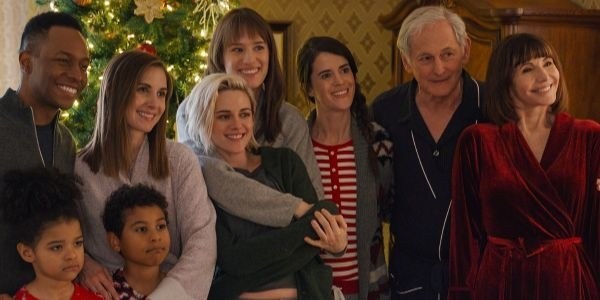12 Films With Inspirational Black Stories
Inspirational Black stories in the American cinematic tradition succeed financially and critically on a narrow bandwidth. Not because the range of Black experiences matches the slim stories deemed worthy to tell, but due to the voices and standards of inspiration often defined by audiences and creators. Most uplifting Black films are weighted by either gratuitous bodily violence against its Black protagonists — typically set during slavery — or white saviors, and they are composed by white directors. The niches carved exclusively for joy in these tales exist in microscopic quantities, wholly dependent upon the measure of the suffering rather than the inherent humanity of the subject.
For these reasons, this list presented a number of challenges to discover truthfully triumphant stories not totally reliant upon anguish. The assembled stories share a number of qualities: They’re underdog tales ripe for self-discovery and leaps of faith; and they are infused with music enrapturing the soul. But most of all, they demonstrate the importance of the love found in community and family, and in the deepest parts of ourselves. They reside in Black women. In the vulnerable. In the forgotten. From filmmakers like Ava DuVernay and Denzel Washington and including documentary and animated short films, here are twelve inspirational Black stories.
Amazing Grace (2019)
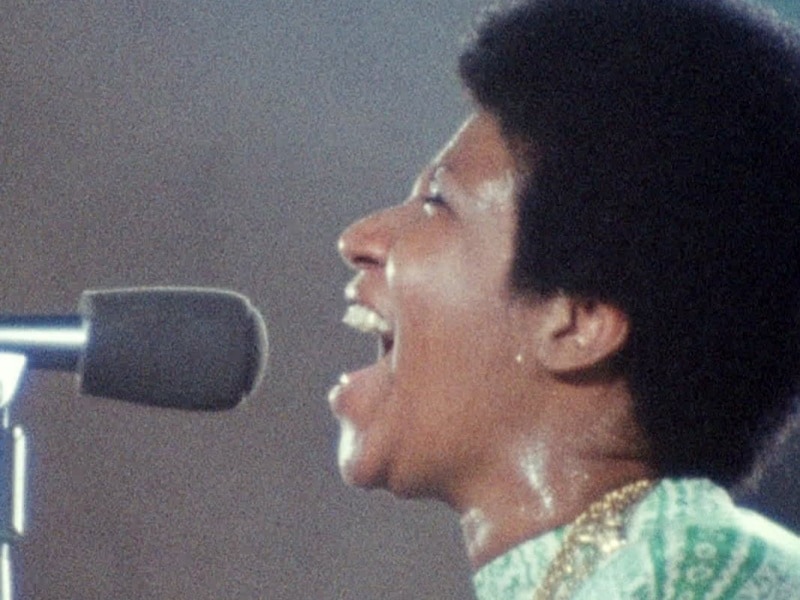
The formula isn’t too difficult. You just need one of the emblems of gospel’s golden age, James Cleveland, the enrapturing Southern California Community Choir, a muscular rhythm section comprised of drummer Bernard Purdie, guitarist Cornell Dupree, and bassist Chuck Rainey, music’s all-time great producers, Jerry Wexler and Ari Mardin, and the soulful vocal saunter of the Queen of Soul, Aretha Franklin. That’s all. And in 1972, Franklin brought these ingredients together in Los Angeles for two scorching nights of gospel standards, driven to near-breakneck heights. The famed director Sydney Pollack originally filmed the quasi-concert-church-service to coincide with the release of Franklin’s live album. While the record would go on to become the highest-selling gospel album ever, due to technical difficulties, the film did not see the light of day until 2018 when Joe Boyd recomposed the footage and synced the audio for one of the great concert films ever.
At times a plaintive yet inspiring whisper, at most points, the footage is electric and enthusiastic. The resplendent Aretha: in her white sequin gown one night and lively green dress another, she dismantles the cliche of gospel as slow and melancholy hymns. From “Wholy Holy” to “Old Landmark,” and of course, “Amazing Grace,” she imbues every note and vibrato with her singular presence for uptempo transcendence for a near-blasphemous ecstasy. Her spirit reverberates through the tiny church in split screens, attendees dancing in the aisles, Cleveland driven to tears, and choir director Alexander Hamilton demonstrating the songs’ unrelenting and undeniable spirit by spasming himself to inviolate depths. Timeless and steeped in tradition, the assemblage of footage and standards can inspire tears and the uncontrollable yet necessary love for the ethereal.
Available on Hulu
Antwone Fisher (2002)
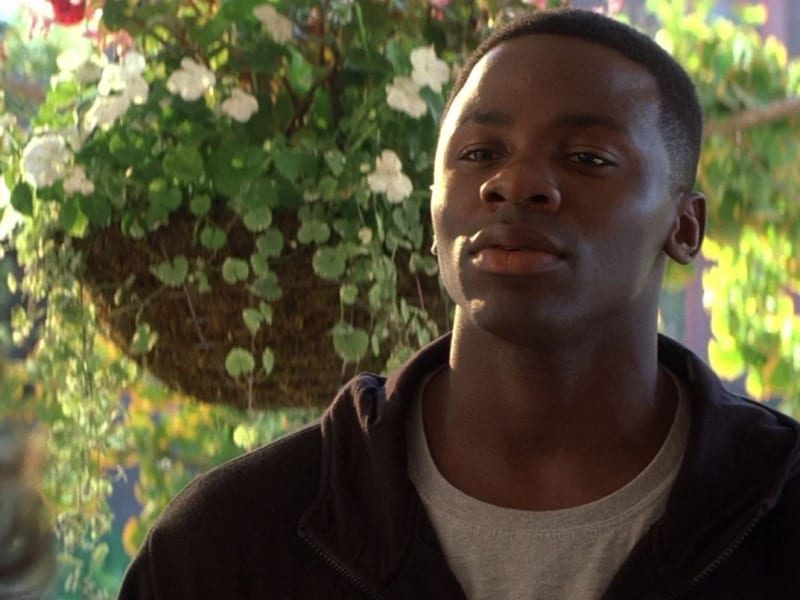
Denzel Washington’s directorial debut, the biopic Antwone Fisher wrestles with childhood traumas, sexual abuse, and mental health. Derek Luke stars as Fisher, a seaman with anger management issues assigned to a Navy psychiatrist, Jerome Davenport (Washington). Much like Good Will Hunting, Fisher at first develops a stonewalling method with his psychiatrist. But Davenport cannot turn away from the violent yet shy young man; he knows there’s promise within this seaman from Cleveland and soon unwraps Fisher’s tragic past. Through their sessions and Fisher’s flashbacks, he learns Fisher’s mother gave birth to him while in prison. With his father dead, the state assigned Fisher to a pair of physically and verbally abusive foster parents.
Even today, it’s still rare to see stories about Black men addressing their mental health. Moreover, mental illness remains a stigma among Black men, often compounded by socio-economic hardships deterring treatment. Davenport and Fisher also share a strong homosocial relationship, with the former helping the latter to overcome his inability to verbalize his love for fellow Navy Officer Cheryl (Joy Bryan) amid his physical barriers and traumas. He overcomes these challenges, along with other childhood difficulties associated with colorism and abandonment, to find closure. Washington’s Antwone Fisher, which features fantastic blocking, an incredible awareness of composition, and a brief appearance from a then-unknown Viola Davis, as a biopic features vulnerability and emotional courage and a harrowing performance from Luke.
Available on Amazon Prime
Dolemite is My Name (2019)
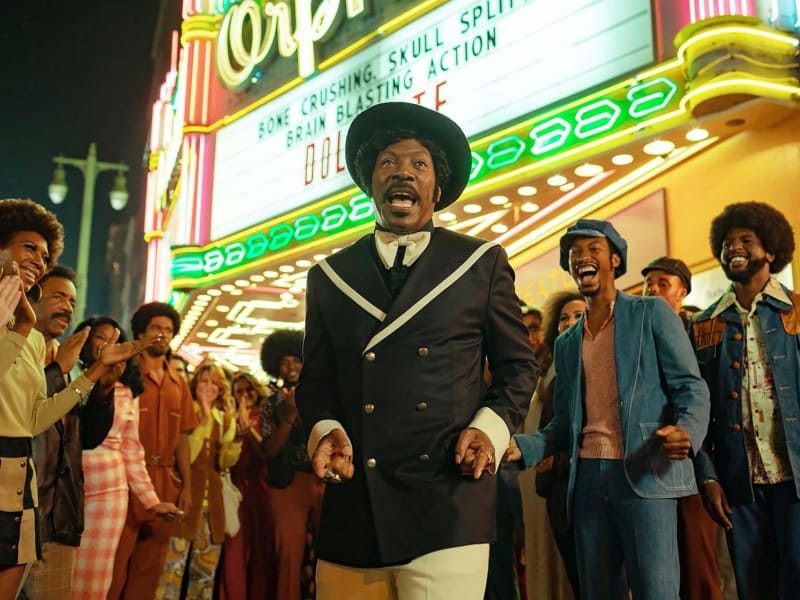
The long-awaited resurgence of Eddie Murphy transpired when Craig Brewer’s Dolemite is My Name premiered at the Toronto International Film Festival in 2019. A biopic recalling the career of the comedian, actor, and producer known as the “Godfather of Rap,” Rudy Ray Moore, who delivered profanity-laced rhymes known as the Dozens while undertaking the persona of a pimp with a stable of sex workers. Also known as Dolemite, Moore ironically did not possess the physique for his act, describing himself as pudgy and old, but he succeeded anyway because of his talent and determination. Initially a straightforward romp, Dolemite is My Name transforms into an underdog story fueled by the romantic vision of creating a movie.
Though Wesley Snipes portrays actor-director D’Urville Martin in a comeback of his own, most of the characters — screenwriter Jerry Jones (Keegan-Michael Key), Jimmy Lynch (Mike Epps), singer Ben Taylor (Craig Robinson), and record store clerk Teddy (Tituss Burgess) — are a ragtag bunch of outsiders. Moreover, the comedy promotes body positivity and deters colorism through Da’Vine Joy Randolph’s heartfelt portrayal of Lady Reed. Often lewd yet endearing, Murphy reminds viewers what made him into a cultural icon by displaying his less-talked about vulnerability. And when the team comes together to film their movie their way, done on a shoestring budget but with a wealth of determination, nothing seems impossible. Even when they discover Moore can’t act.
Available on Netflix
Hair Love (2019)
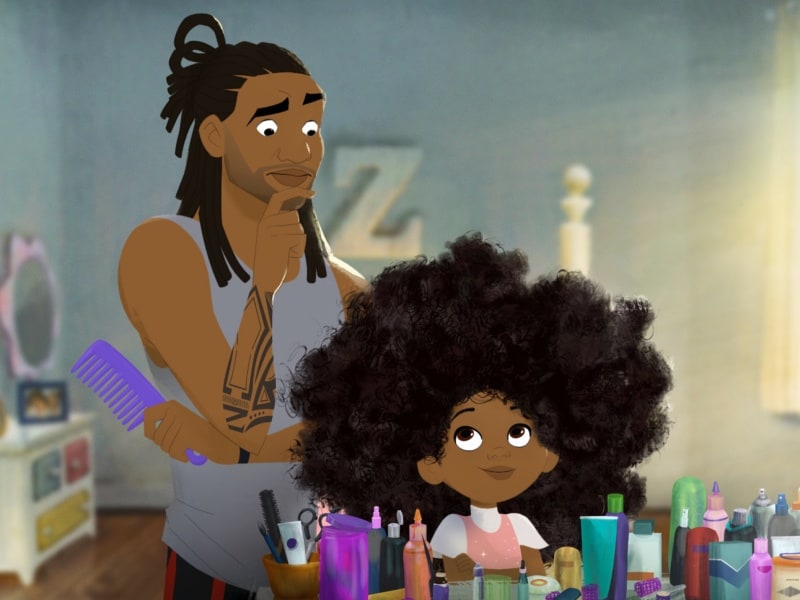
Winner of the Academy Award for Best Animated Short at the 92nd Oscars, Matthew Cherry’s Hair Love packs more heart and poignancy in seven minutes than most writers aspire for in a three-hour drama. A deceptively simple story, Hair Love sees a young Black girl asking her father to design her hair, like her mom used to. To her father, the task at first appears formidable: He views his daughter’s rambunctious hair as an object of fear requiring pugilistic wits to conquer. But the trepidation wrongly associated with Black hair isn’t confined to solely the father.
Historical standards of beauty — often decided by white minds — have often demonized and sometimes co-opted Black hair as ugly and unruly. Cherry reshapes these misconceptions by demonstrating Black hair as love, and activities like braiding and combing as opportunities for bonding. The third act’s emotional kick, which if you haven’t watched the film I won’t spoil it, follows on the feels of the father using the video hair tutorials, narrated by the girl’s mother, to fashion her. And by the time the final reveal hits, it’s enough to decimate you. Though uplifting doesn’t immediately equate to tears, family does. And Cherry’s Hair Love makes family its central care, whether helping your daughter with her hair or fighting life’s battles, one video and comb at a time.
Available on Youtube
The Heart of the Game (2005)
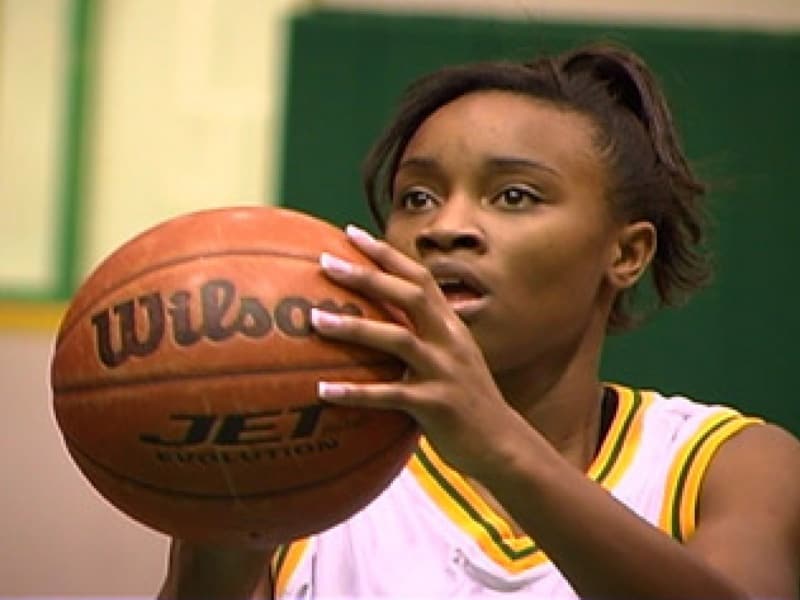
Nearly every inspirational story begins with an underdog. Ward Serrill’s little-known sports documentary The Heart of the Game features one such David — or maybe Danellia — vs. a Goliath. A study of Seattle’s Roosevelt High School girl’s basketball team, The Roughriders, initially, the odds aren’t so long. Bill Resler, a tax professor at the University of Washington and an avid basketball fan, assumes coaching responsibilities for the high school team. He begins by employing a yearly animal-based theme. During one season, Resler tells them they’re a wolfpack prowling to devour their prey. He also installs a run-and-gun offense and full-press defense, freezing and demolishing opponents in the process. However, with the success, the girls are beset by heady complications, from infighting to an unthinkable sexual assault.
On first blush, other than Ludacris acting as narrator, The Heart of Game doesn’t give off the vibe of a Black story. For one, Roosevelt is a mostly white school. Furthermore, Resler — a white coach — assumes much of the screen time. It’s not until the wildly talented Darnellia Russell enrolls into Roosevelt that we have our David. Upon her arrival, Darnellia grapples with adjusting to a nearly all-white school. Her grades drop, as does her attendance. Throughout, Serrill provides lyrical slow-motion shots and personal behind-the-scenes footage of these girls loving and playing the game with grit and power. But the massively talented Darnellia, whose mother chose Roosevelt over the mostly Black Garfield High School because of its underfunding, becomes pregnant. She spends the final act of the documentary not only trying to hoist her team to a state championship but fighting against a school board and local sexism, which believes she should be punished for her actions. Her battle makes for a visceral conclusion demonstrating the heart of a winner.
Available on VOD
Miss Juneteenth (2020)
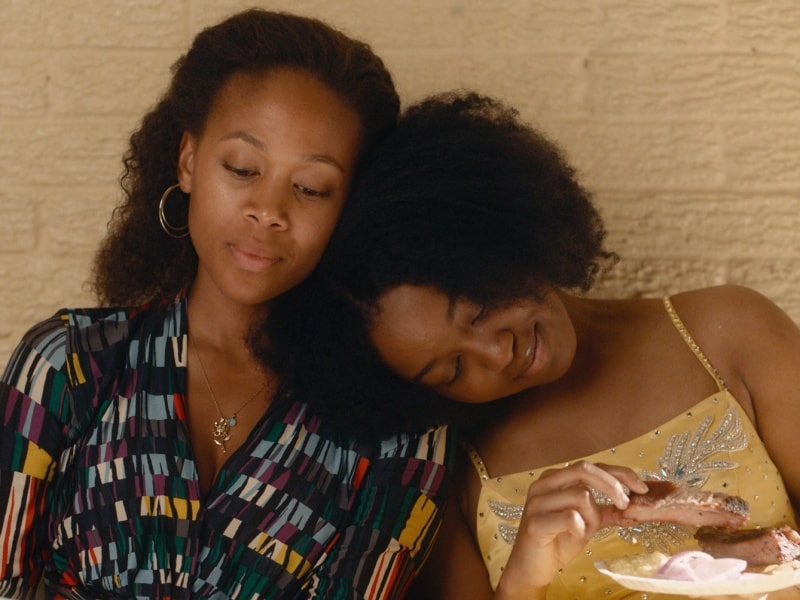
Set in a Texas town, Channing Godfrey Peoples’ feature directorial debut, Miss Juneteenth, ostensibly follows a mother preparing her daughter for a beauty pageant but essentially establishes the importance of autonomy. Historically, Juneteeth celebrates the day in 1865 when slaves in Texas were told of the Emancipation Proclamation — a full two years after its passage. The jubilee commemorating the day is celebrated differently depending on family and state. In this Texas town, they hold a pageant to award a crown, a parade, and a full-ride scholarship to any Historically Black College and University (HBCU) for Miss Juneteenth.
Turquoise Jones (Nicole Beharie), a former winner currently working a blue-collar job in a bar but now disgraced after a career as a stripper, enrolls her daughter Kai (Alexis Chikaeze) into the competition in the hopes of promising her a successful future. Peoples concerns her film with the value of ownership: the men in Turquoise’s life facilitate auto shops, funeral homes, and bars. Meanwhile, she’s mostly dependent upon them for subsistence. Turquoise wants Kai to have the financial freedom she lacks, even if such gains require her traversing through the antiquated snooty system that beauty pageants sometimes welcome. Moreover, she imprints lessons of her failings onto her daughter, thereby zapping her individuality. But between center-framed shots communicating unavoidable truths, a daughter and mother do come together. Because they discover that one’s dreams do not define you, nor does the failure to reach those beloved heights.
Available on PVOD
Queen of Katwe (2016)
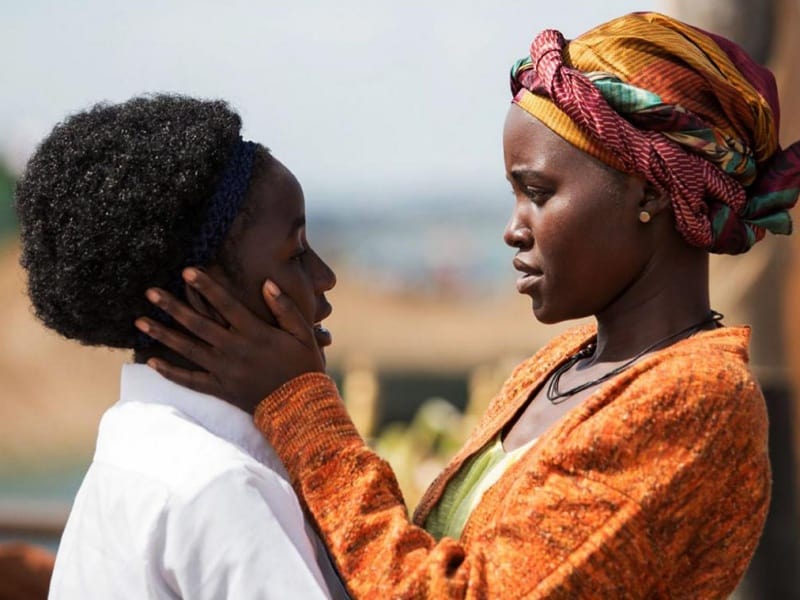
Greatness resides in the unlikeliest of sites, in the most improbable of people. In the slums of Katwe, a forgotten parcel of Kampala, Uganda, lives ten-year-old Phiona (Madina Nalwanga) and her family, headed by her mother Nakku Harriet (Lupita Nyong’o). Illiterate and impoverished, Phiona and her younger brother Brian (Martin Kabanza) befriend chess teacher Robert Katende (David Oyelowo) and become his pioneers in the chess world. However, to Robert’s surprise, Phiona is more than an explorer. She eventually shows signs of prodigious skill and the instincts and brilliance of a champion. If Phiona’s story reads like a fairy tale, it’s not pixie dust obscuring reality. Mira Nair’s Queen of Katwe is based upon Tim Crothers’ book documenting the real-life rise of the chess-playing virtuoso.
Beginning in 2008, Nair’s coming of age story was filmed on location in Katwe and Johannesburg, South Africa. The effect: from the vibrant hues of green and yellow signaling rebirth, the street vendors and their everyday bustle in the small village, and the tracking shots consuming the multitude of fashions and transportation — cars, bikes, and buses — adds more than authenticity. The milieu enlivens the viewer to know the remoteness yet closeness of the inhabitants, and their turbulent way of life. Phiona discovers self-confidence, learns to read, and devises a way to transcend her harsh realities. And by battling poverty and imposter syndrome, through the help of family and friends, she attains the unlikeliest of victories.
Available on Disney+
Remember the Titans (2002)
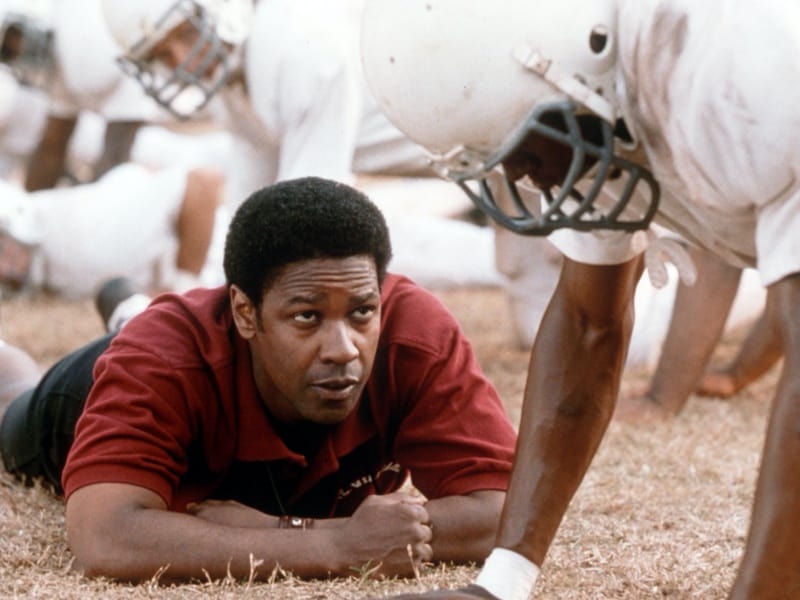
Boaz Yakin’s Remember the Titans belongs squarely in the “why can’t we all just get along” sub-genre of race-relations films. Nevertheless, Yakin’s feel-good movie avoids much of the pitfalls found in a Green Book or The Help. Partly because Gregory Allen Howard wrote the script — adding a Black narrative perspective — and also due to the presence of Denzel Washington as coach Herman Boone;, a no-nonsense tactician tasked with integrating the T. C. Williams High School football team. Unlike other films, the premise of Remember the Titans makes the leading players’ willingness to forgo years of racial tension believable. Sports are about winning. And football, a dangerous game, requires implicit trust in the person next to you for continued success.
The assemblage of actors and their performances — Ethan Suplee as a congenial giant, Kip Pardue as the long-haired hippie Sunshine, and a relatively unknown Ryan Gosling — even if formulaic, hold the true-events-story together. Moreover, the oppositional relationship between Julius (Wood Harris) and Bertier (Ryan Hurst) morphs into a tender homosocial friendship not born from thin air but in trying circumstances. And it’s one of the few films set during the Civil Rights Era where the gravest harm isn’t inflicted upon a Black body in the enacting of change. But mostly, it’s the fact that though Will Patton plays a white savior in the role of Coach Yoast, Coach Boone never relents in his fervent beliefs and coaching philosophy. Instead, everyone changes to suit him. Thereby, making Remember the Titans more than a story about burying racial hatchets. It’s a Black man remaining true to himself and succeeding no matter the opposition.
Available on Amazon Prime
Selma (2014)
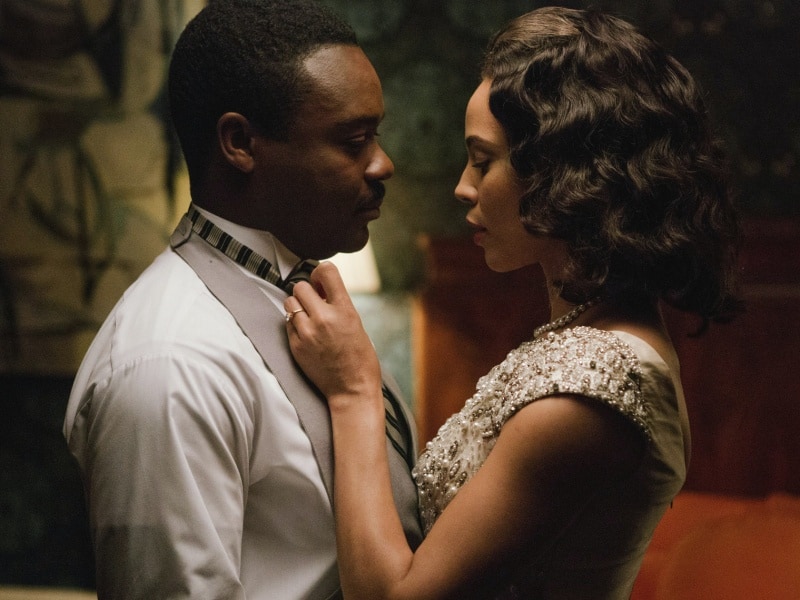
When composing this list, I relied on a few guiding principles: no slave films, limiting movies with clear Black bodily trauma, and no repeat filmmakers. But the pull of Ava Duvernay’s Selma — an exploration of Civil Rights tactics as much as a Martin Luther King, Jr. biopic — proved too great to avoid. David Oyelowo portrays the historic leader and orator by conjuring his spirit in the warm drawl of his sermons and the soaring luminosity of his vibrato. But to DuVernay’s credit, she doesn’t direct her focus solely toward King. She balances the macro strategies used by protesters — lawmaking, media, and protests—with the micro of individual participants banding together to form a larger web. DuVernay’s refined eye results in an array of crushingly beautiful tableaus dependent upon low-key lighting and detailed production design. And every center-framed shot invokes not just gravitas, but the pragmatic techniques of civil disobedience that fueled King and the Civil Rights Movement.
And though every performance from this deep and rich cast, entrances the eye, nothing jolts the viewer more than the attempted and successful crossing of Edmund Pettus Bridge. Unflinchingly gruesome in depicting the violent actions of state troopers against protesters, the most sorrowful component is how little the struggle for equality and the sanctity of Black lives have changed in the intervening half-century plus. Still, “truth crushed to earth will rise again.” DuVernay, even in depicting King’s weariness, and enlivening the risks when fighting for change, creates a film that soars to the zenith of King’s passionate sermons with the humanity of his beliefs.
Available on Amazon Prime
Sister Act 2: Back in the Habit (1993)
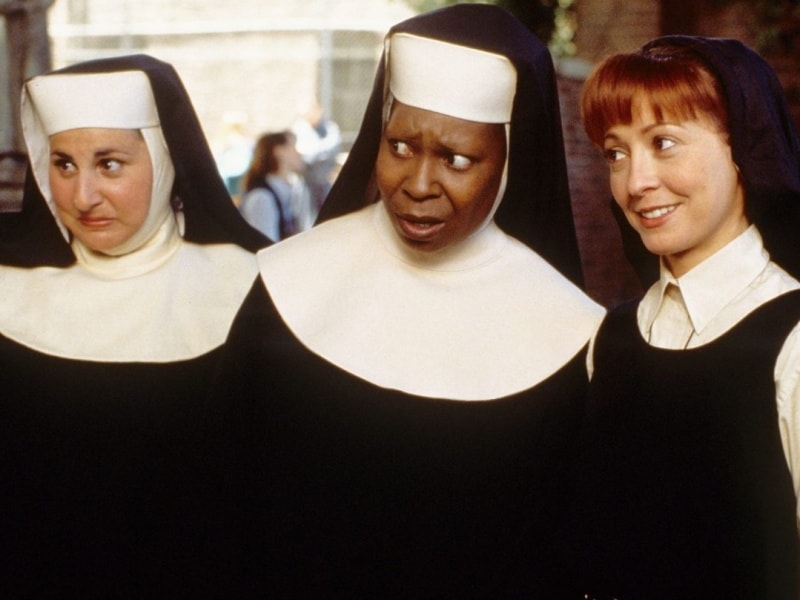
Sister Act 2: Back in the Habit features familiar faces returning for another underdog story. Here, at the behest of Reverend Mother (Maggie Smith), Sister Mary Lazarus (Mary Wickes), Mary Robert (Wendy Makkena), and Mary Patrick (Kathy Najimy) beg the now Las Vegas headlining Dolores (Whoopi Goldberg) to don the habit of Sister Mary Clarence once again and become the new music teacher for the soon-to-closed St. Francis Academy in San Francisco. There, she discovers a grumpy school administrator, Mr. Crisp (James Coburn), vying for early retirement by pushing the archdiocese to shutter the school. She also encounters an unruly cadre of inner-city students who, to her surprise, can sing. To save the school, Sister Mary Clarence turns the children into a choir and leads them into an all-state singing competition.
While Emile Ardolino directed the first Sister Act, Bill Duke was enlisted for Back in the Habit. Goldberg is irresistible and ebullient as a tough-love teacher for the mostly Black students who’ve been stereotyped by their older white instructors as figures to be disciplined and controlled. Moreover, the kids live in a neglectful neighborhood suffering from white flight. And while the first Sister Act infused hymnal church music with R&B classics, Back in the Habit imbues secular music like hip-hop with gospel. The voices soar in Duke’s movie. Especially a pre-Fugees Lauryn Hill — a beaming talent ready to conquer the ’90s — grappling with a domineering mother in this film. Through performances like “Ball of Confusion,” and the song’s overt political themes, and “Oh, Happy Days,” Sister Act 2 provides show-stopping soulful numbers in an underdog story that’s about judging people of color past their appearances and instead upon the contents of their dreams.
Available on Disney+
Soul Food (1997)
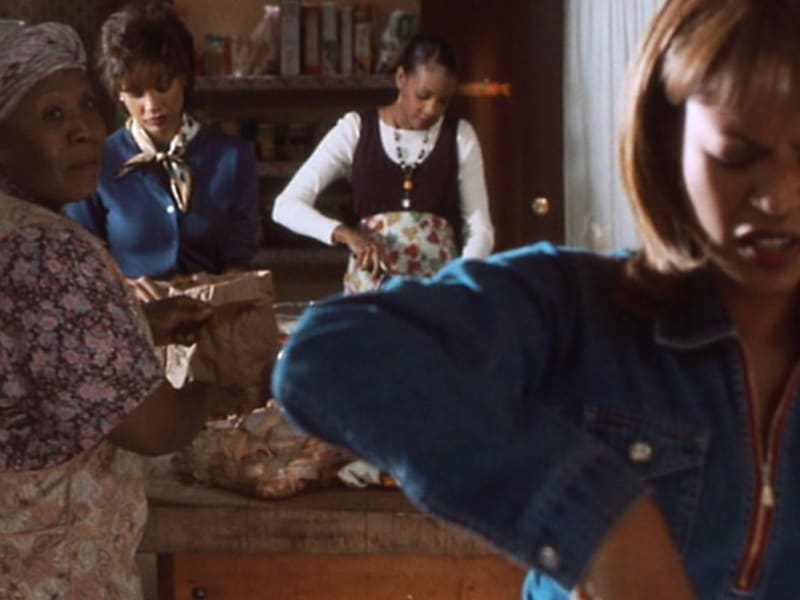
Asian cinema has long understood the connection between food and family when conjuring heartfelt films. Here, in George Tillman, Jr.’s Soul Food, amid loving close-ups of simmering black-eyed peas, boiling collard greens, and battered deep-fried catfish, is a middle-class Black family held together by the bonds of food and affection. Filmed in Chicago, with set-pieces Tillman would later employ in Barbershop, the usual archetypes appear: the jovial reverend, the promiscuous distant relative (Gina Ravera), and the wise matriarch Big Mama (Irma P. Hall). Now stereotyped roles, these components still felt lively two decades ago. And from the fashions to the Boyz II Men-inspired music and the gender politics of the time, Soul Food is very much a ’90s film.
Nevertheless, Tillman’s film doesn’t feel dated. Because the best components of Soul Food aren’t dependent upon mere artifice. The spaces feel lived-in, and the characters are just as real. To its favor, the drama’s events find their perspective through eleven-year-old boy Ahmad (Brandon Hammond), the son of Maxine (Vivica A. Fox) and Kenny (Jeffrey D. Sams). Demonstrating great perception, Ahmad notices the faults cracking open among the family post-Big Mama’s stroke. There are marital problems between Teri (Vanessa Williams) and her husband Miles (Michael Beach), an ex-lover stalking Bird (Nia Long), and her newly-paroled boyfriend (Mekhi Phifer) hunting for a job. The traditions that once bound them together disintegrate. And it’s up to Ahmad to play the role of Big Mama and mend their blistering wounds. Through him, the near-unbreakable bond of family, history, and food are an irresistible concoction for healing — a balm for the soul.
Available on Hulu
A Wrinkle in Time (2018)
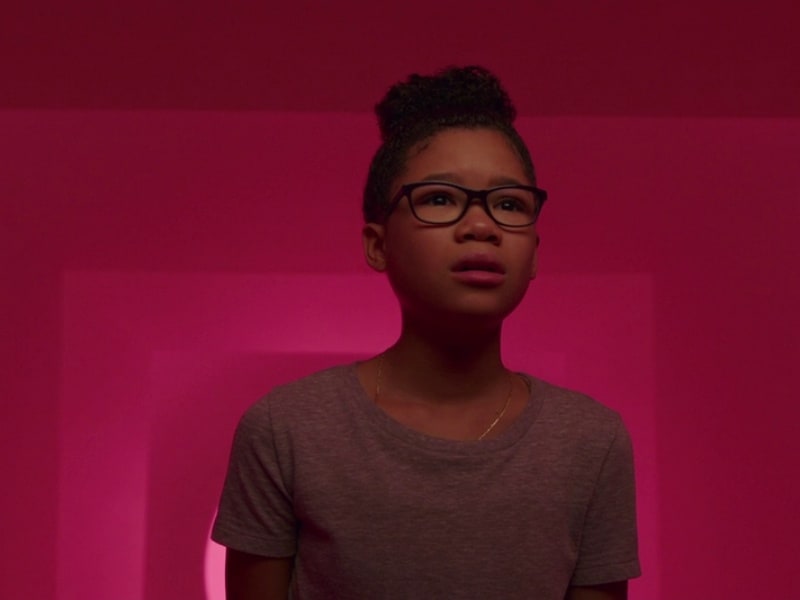
In his book Better Living Through Criticism, New York Times film critic A.O. Scott opined, “It is the sacred duty of the critic to be wrong.” Two years ago, I made an error in my loathing of Ava DuVernay’s fairy tale adventure A Wrinkle in Time. I thought the film tawdry, messy, and obtusely earnest. But on a second watch, DuVernay’s translation of the visual and emotional depth of Madeleine L’Engle’s novel rushed toward me with greater speed and swifter delight. Set four years after the disappearance of astrophysicist Alex Murray (Chris Pine) — who teleported to a different world after discovering the tesseract as a means for travel — his incredulous daughter Meg (Storm Reid), perceptive son Charles Wallace (Deric McCabe), and their diplomatic friend Calvin (Levi Miller) embark on a quest to bring him home.
As with any fairy tale, the journey acts as a mere surface to the deeper pursuit of personal growth. Meg must take the greatest leap of the adventurers, as she does not trust easily and suffers from self-loathing. Faults compounded by the disappearance of her father and from other children bullying her at school. Through the help of the astrals Mrs. Which (Oprah Winfrey), Mrs. Whatsit (Reese Witherspoon), and Mrs. Who (Mindy Kaling) — warriors of light dressed in ethereal abstract fashions — the children traverse through universes to confront the evil threat IT (David Oyelowo) and its appeals toward several deadly sins. The array (no pun intended) of the brunt psychological and psychedelic demons they confront make their triumphs all the more thrilling. And past dark passages, into brighter days, Meg learns to have faith in herself and others and serves as an inspiration for young Black girls everywhere.
Available on Disney+





